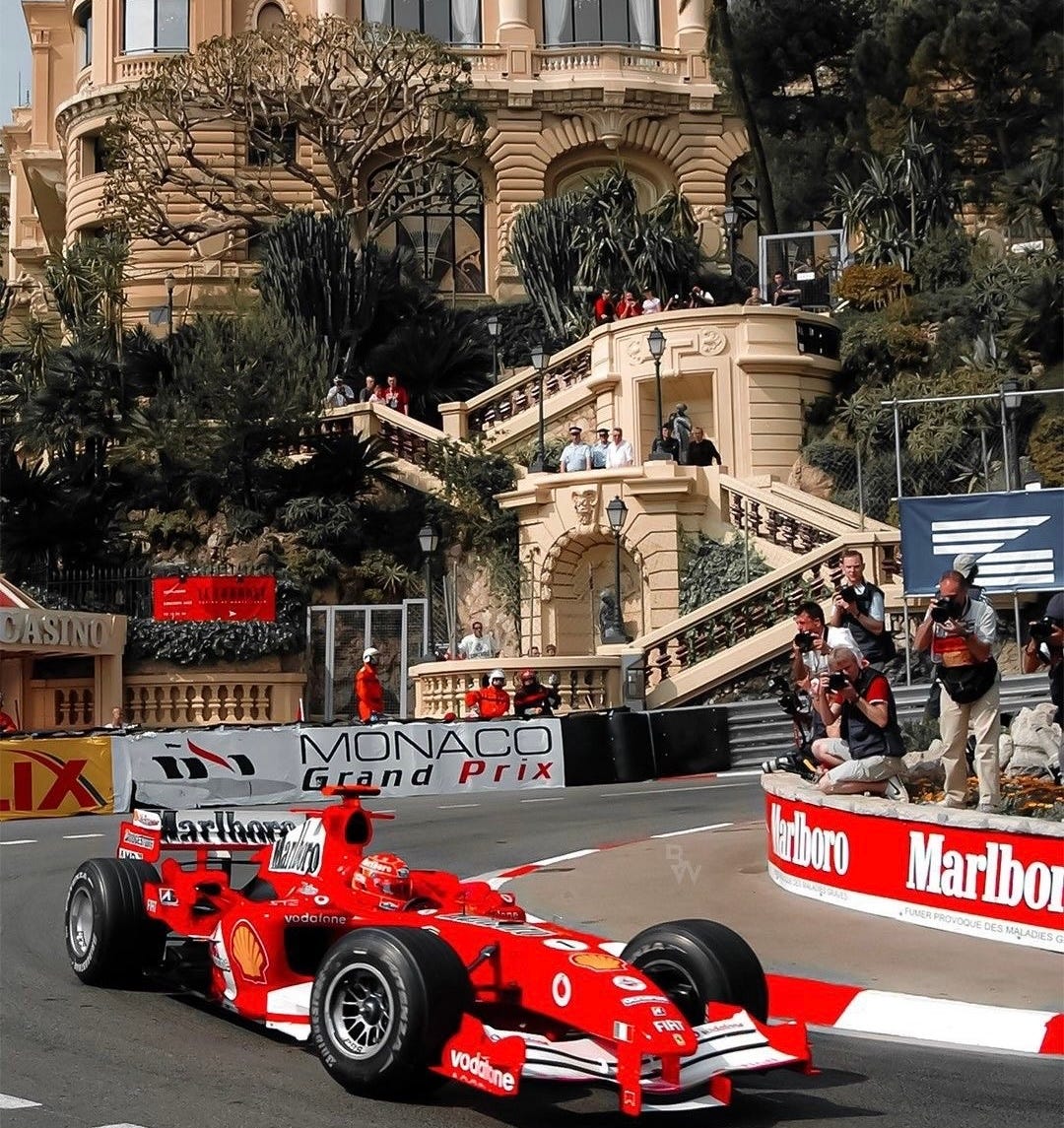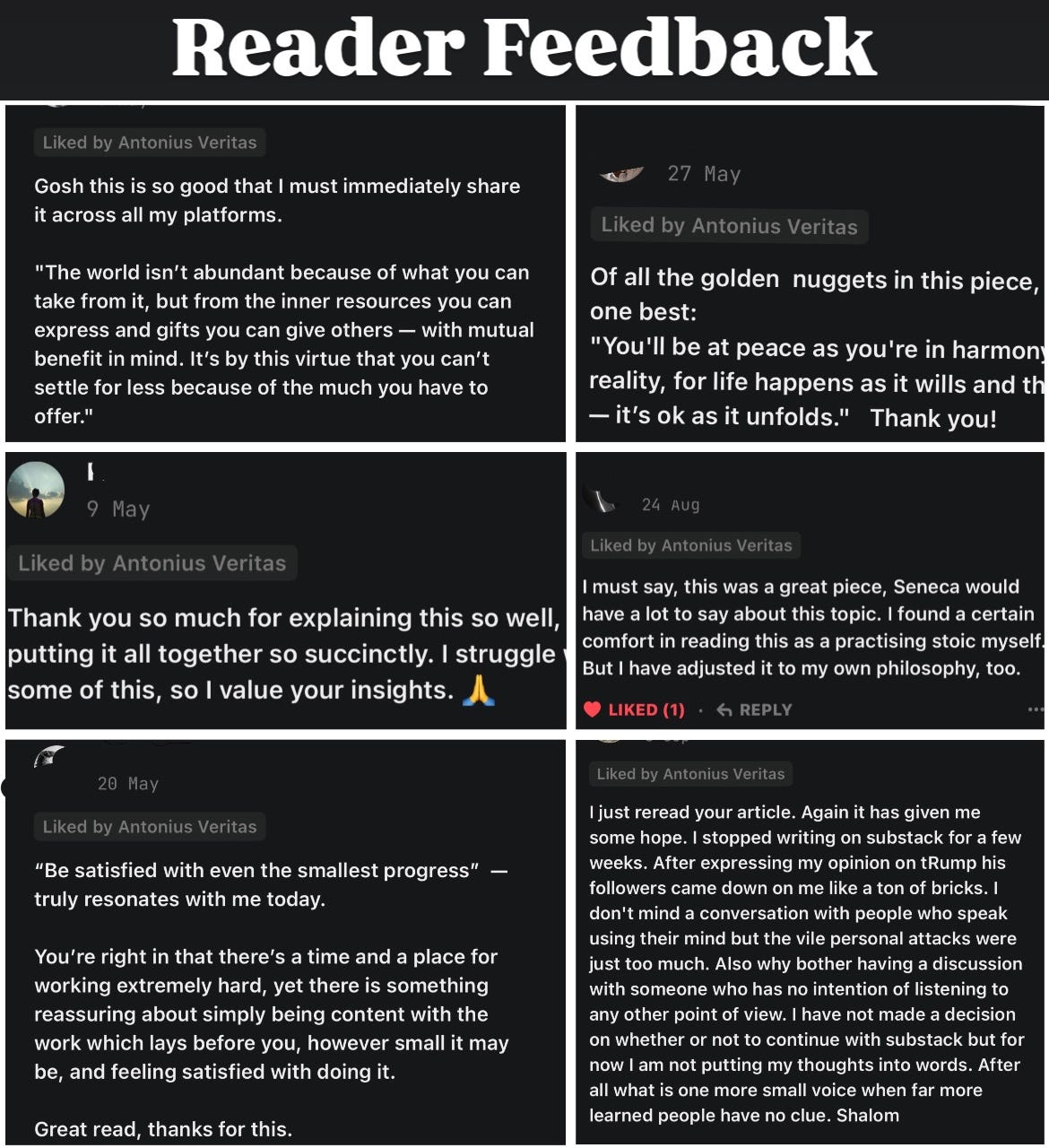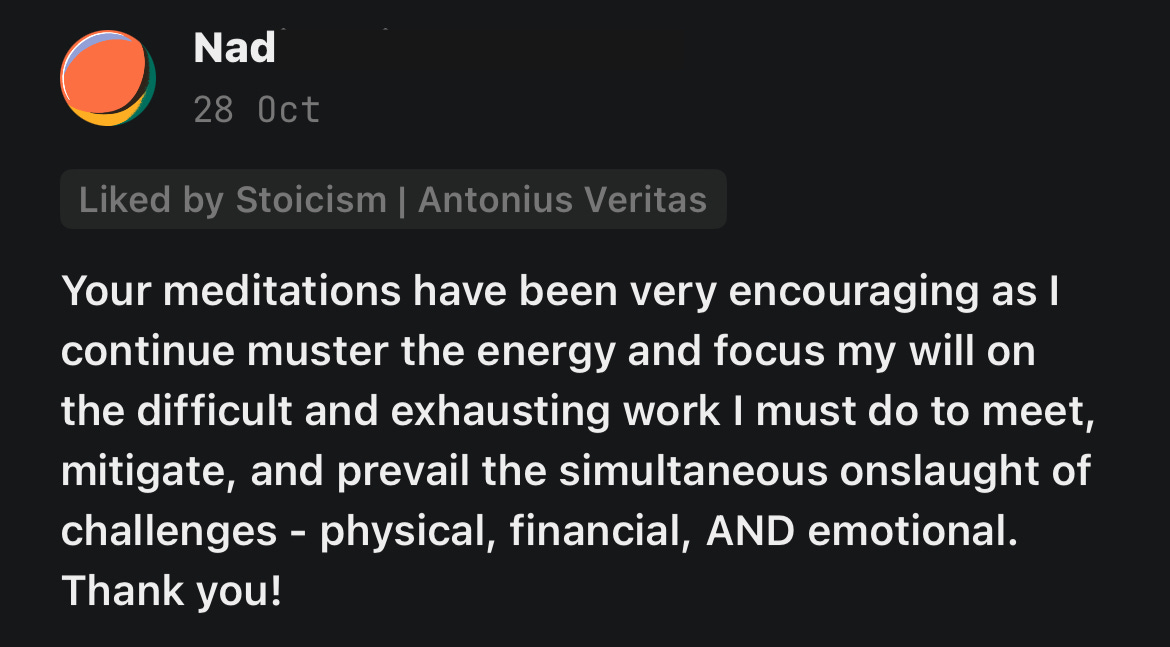L. How to Compare Yourself to Others
We can grow—not out of lack, but from a place of abundance.
P.S: The ‘Neuroscience-based Tools’ section is a companion for The Stoic Manual to help you become wealthier, happier & more powerful by boosting your resilience, drive, motivation, focus, and overall health—by Dr. Antonius Veritas.
“Don’t waste the rest of your time here worrying about other people—unless it affects the common good. It will keep you from doing anything useful.” —Marcus Aurelius
Comparison is sneaky.
It creeps in while we’re scrolling through social media, catching up with friends, or even just sitting quietly with our thoughts.
Before we know it, we’re wondering why someone else’s life looks so much shinier than ours.
They have the better job, good health—despite eating like trash, the bigger house, the fancier vacation, or just seem to have everything figured out.
Meanwhile, we’re over here stuck folding clothes and eating leftovers from the fridge.
To free ourselves from this mindset, we can’t pretend the feelings don’t exist.
What we can do is shift how we respond to the impulse.
We can turn comparison into fuel for self-discovery and purposeful action.
Why We Compare, and Why It Hurts
Comparison stems from a desire for validation.
We want proof that we’re doing life “right,” that we measure up in terms of wealth, relationships, success, or status.
But this desire turns toxic when we forget an essential truth: the metrics we’re using to measure others aren’t built for us.
What looks like success for someone else—a high-paying job, a glamorous relationship, a new car—might not even align with our values.
When we dwell on what others have, we rob ourselves of joy in what we’ve built.
Gratitude shrinks, envy grows, and life feels smaller, less meaningful.
We’re chasing something we can never catch because comparison is inherently flawed.
No matter what we achieve, there will always be someone ahead in one area or another.
The cycle doesn’t stop until we choose to step off the wheel.
More Is Never Enough
We often assume that if we just had more—money, admiration, success—life would be great.
And in some cases that perspective might be true, especially if we’ve just started to accumulate power.
But often this isn’t true?
Remember the time we thought that new phone would fix everything, only to discover the Wi-Fi still sucks?
Happiness isn’t found in accumulation; it’s found in the harmonious alignment with universal nature, our nature and that of other people.
It’s about aligning with our values, our vision, and our purpose.
External success can support these things, but it can’t replace the inner work of self-love, self-acceptance, and self-improvement.
The deeper work—addressing insecurities, appreciating our progress, and tapping into our potential—can’t be outsourced to shiny stuff.
No amount of possessions will rescue us from the inner work of becoming kinder, wiser, and maybe less inclined to yell at the microwave for being slow.
Play Your Game
Life’s about competition and dominance.
But also about growth, creation, and connection.
Comparison will always be a part of us—it’s how our brains are wired.
But we can transform it into something useful.
Instead of letting it diminish us, we can let it illuminate our desires and drive us toward action.
Envy doesn’t have to be the annoying mosquito of emotions—it can be a prompt to strengthen our connections and refine our goals.
Feeling envious when someone else succeeds? That’s a sign pointing to what we value and an example whose admirable character we can benchmark.
If someone’s relationship makes us feel left out, maybe we’re craving deeper connections.
By playing our game—cultivating our uniqueness and focusing on our growth—we transcend competition.
It’s how we free ourselves from the pressure.
It’s how we exert dominance over our own lives.
The Search for Admiration
Many of us crave admiration and the ability to provide for others without limits.
It’s a noble impulse but also a heavy burden.
Tying our self-worth to external validation or financial success sets us up for disappointment.
For admiration is fickle.
People move on quickly—think about how fast we scroll past a photo we liked ten seconds ago.
Chasing admiration leaves us exhausted, constantly trying to prove we’re “enough.”
The truth is, we already are.
Real confidence doesn’t come from being celebrated.
Do you like this meditation so far? ⭐️
Support the publication to read the rest and access 100+ premium essays & meditations.
Here’s what other readers are saying…




